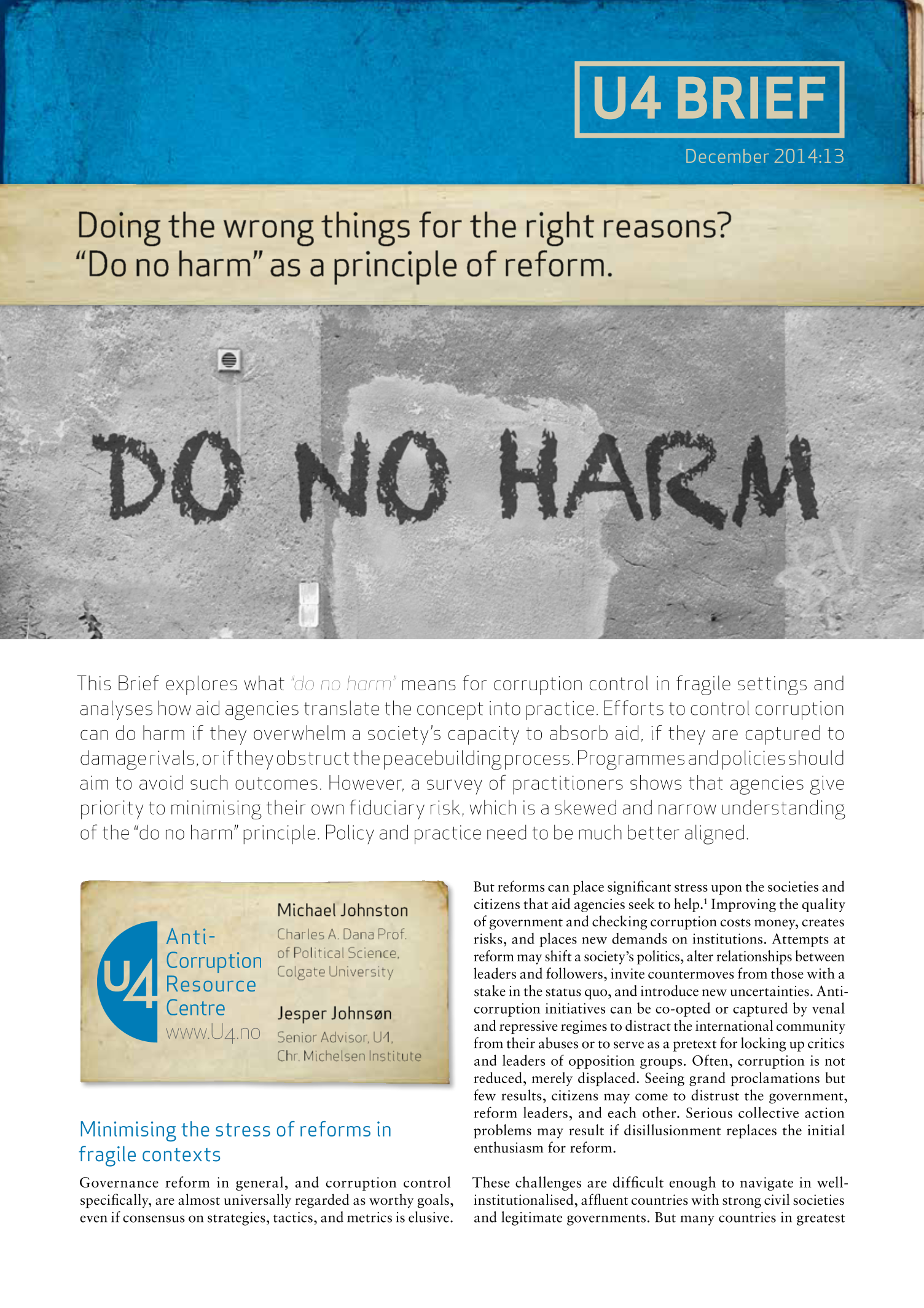U4 Brief
Doing the wrong things for the right reasons? “Do no harm” as a principle of reform.
This Brief explores what “do no harm” means for corruption control in fragile settings and analyses how aid agencies translate the concept into practice. Efforts to control corruption can do harm if they overwhelm a society’s capacity to absorb aid, if they are captured to damage rivals, or if they obstruct the peacebuilding process. Programmes and policies should aim to avoid such outcomes. However, a survey of practitioners shows that agencies give priority to minimising their own fiduciary risk, which is a skewed and narrow understanding of the “do no harm” principle. Policy and practice need to be much better aligned.

Cite this publication
Johnston, M.; Johnsøn, J. 2014. Doing the wrong things for the right reasons? “Do no harm” as a principle of reform. Bergen: Chr. Michelsen Institute (U4 Brief 2014:13) 4 p.
Disclaimer
All views in this text are the author(s)’, and may differ from the U4 partner agencies’ policies.
This work is licenced under a Creative Commons Attribution-NonCommercial-NoDerivatives 4.0 International licence (CC BY-NC-ND 4.0)


